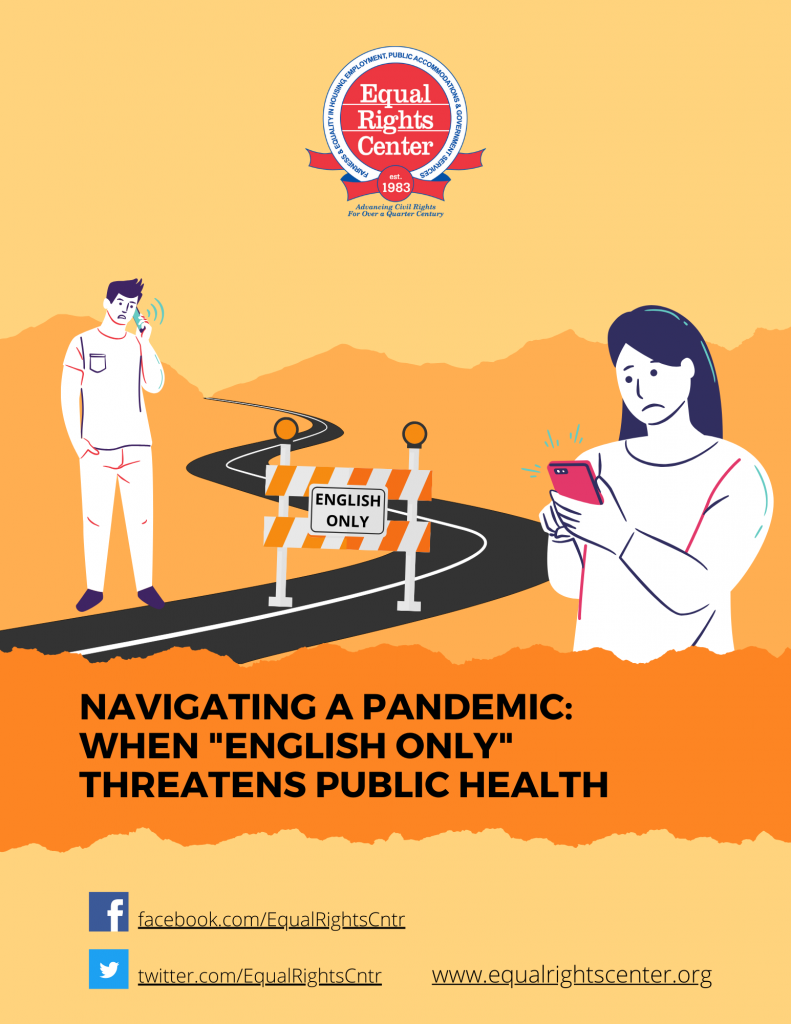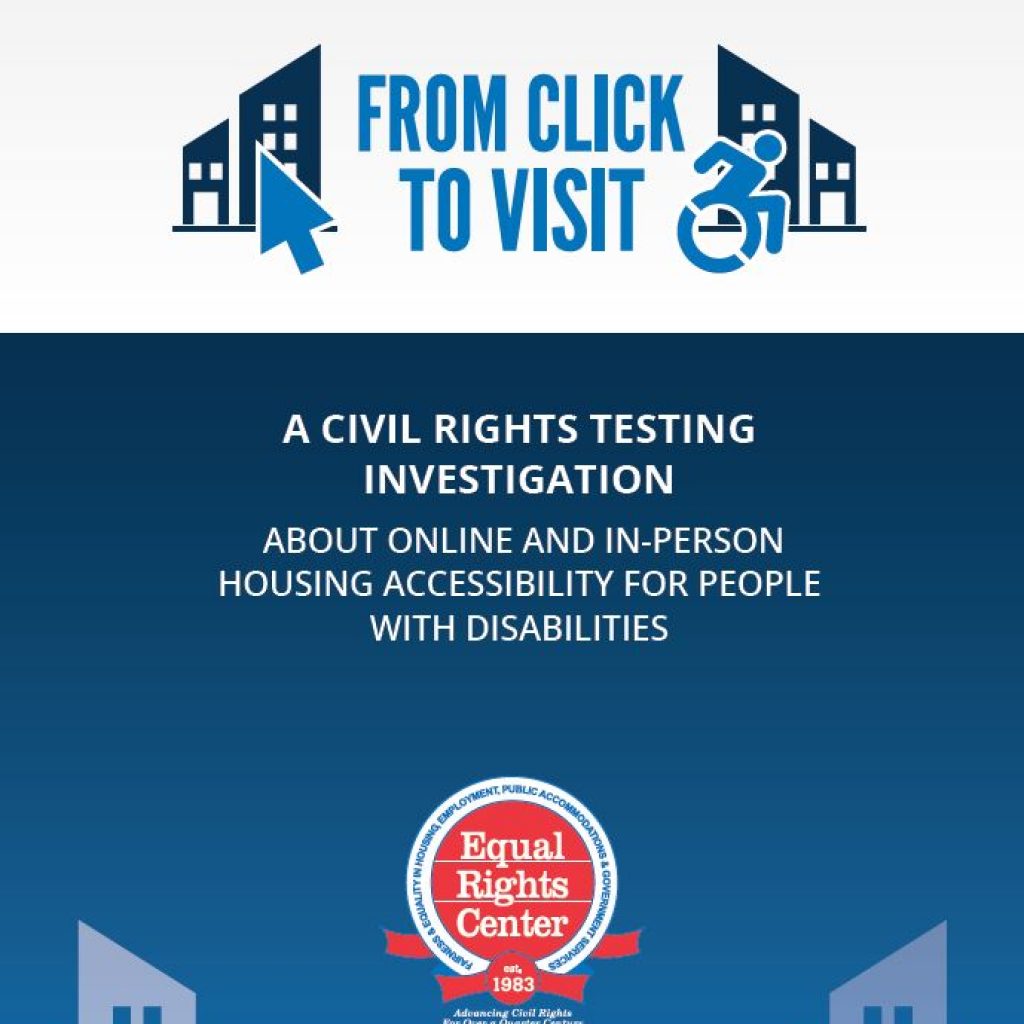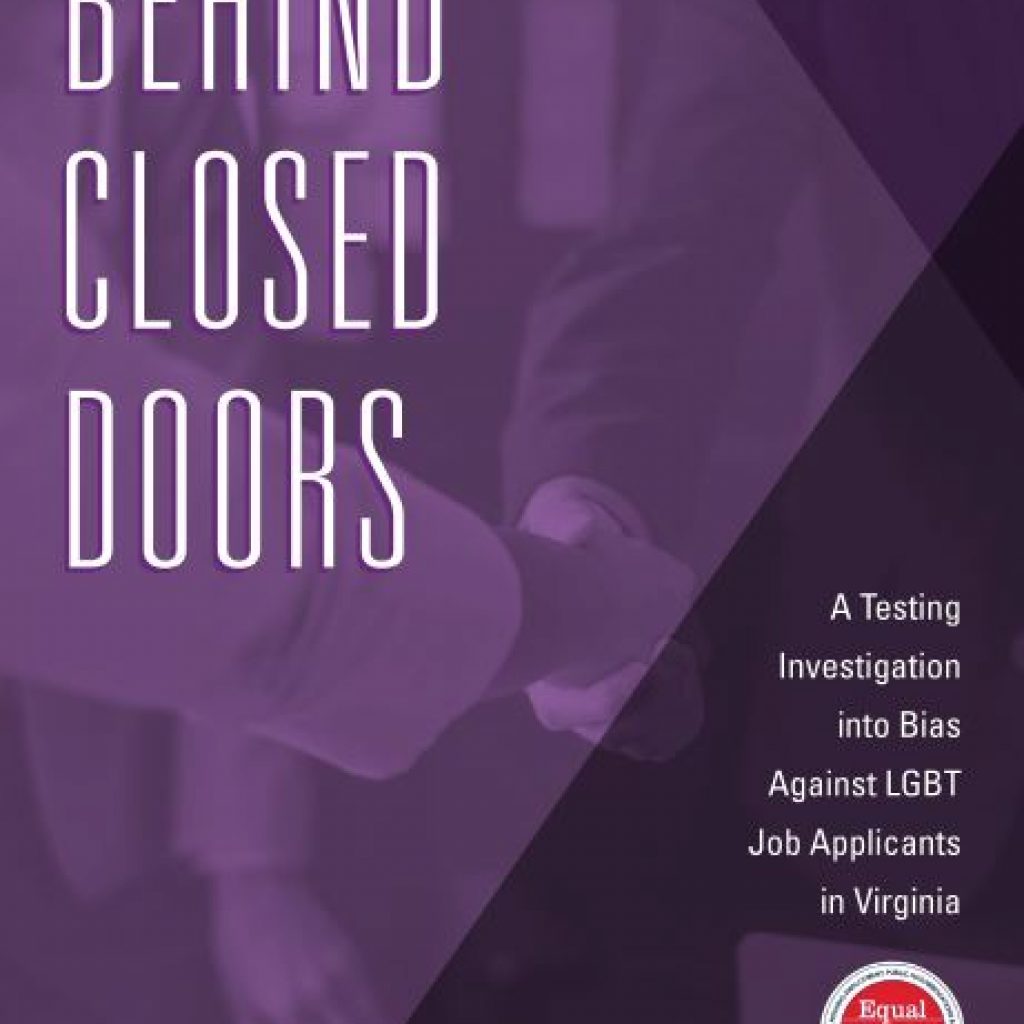Testing Reports and Publications
RECENT RESEARCH
All Reports by Program Area
Fair Housing
• Next Generation Segregation: A Civil Rights Testing Investigation and Report
• Unlocking Discrimination: A DC Area Testing Investigation About Racial Discrimination
and Criminal Records Screening Policies in Housing
• Discrimination Against Transgender Women Seeking Access to Homeless Shelters
• Opening Doors: An Investigation of Barriers to Senior Housing for Same-Sex Couples
• Puertas Cerradas: Housing Barriers for Hispanics
Public Accommodations
• Navigating a Pandemic: When “English Only” Threatens Public Health
• Testing for Language Access in Charity Care Services in Washington State
• Access Denied: Washington’s Charity Care System, its Shortfalls, and the Effect on Low-Income Patients
• Acceso Denegado: El Sistema de Cuidado Caritativo de Washington, sus Deficiencias, y el Efecto a Pacientes de Bajos Ingresos
• Room for Change: An Investigation Exploring the Levels of Discrimination in Retail Stores Based on Gender Identity and Race
What is civil rights testing?
The ERC’s core strategy for identifying unlawful and unfair discrimination is civil rights testing. When the ERC identifies discrimination, it seeks to eliminate it through the use of testing data to educate the public and business community, support policy advocacy, conduct compliance testing and training, and, if necessary, take enforcement action. Our research reports highlight the testing investigations the ERC has engaged in over the years. Hover over the box to learn more.
Civil rights testing is an investigative tool used to gather evidence, usually in order to compare conduct to legal requirements or a policy. It involves one or more people covertly engaging in a transaction or interaction. Matched pair testing, a method the ERC commonly employs, is one type of civil rights test that compares treatment between two people based on one variable because all other differences are controlled for. Click here to learn more about testing.




